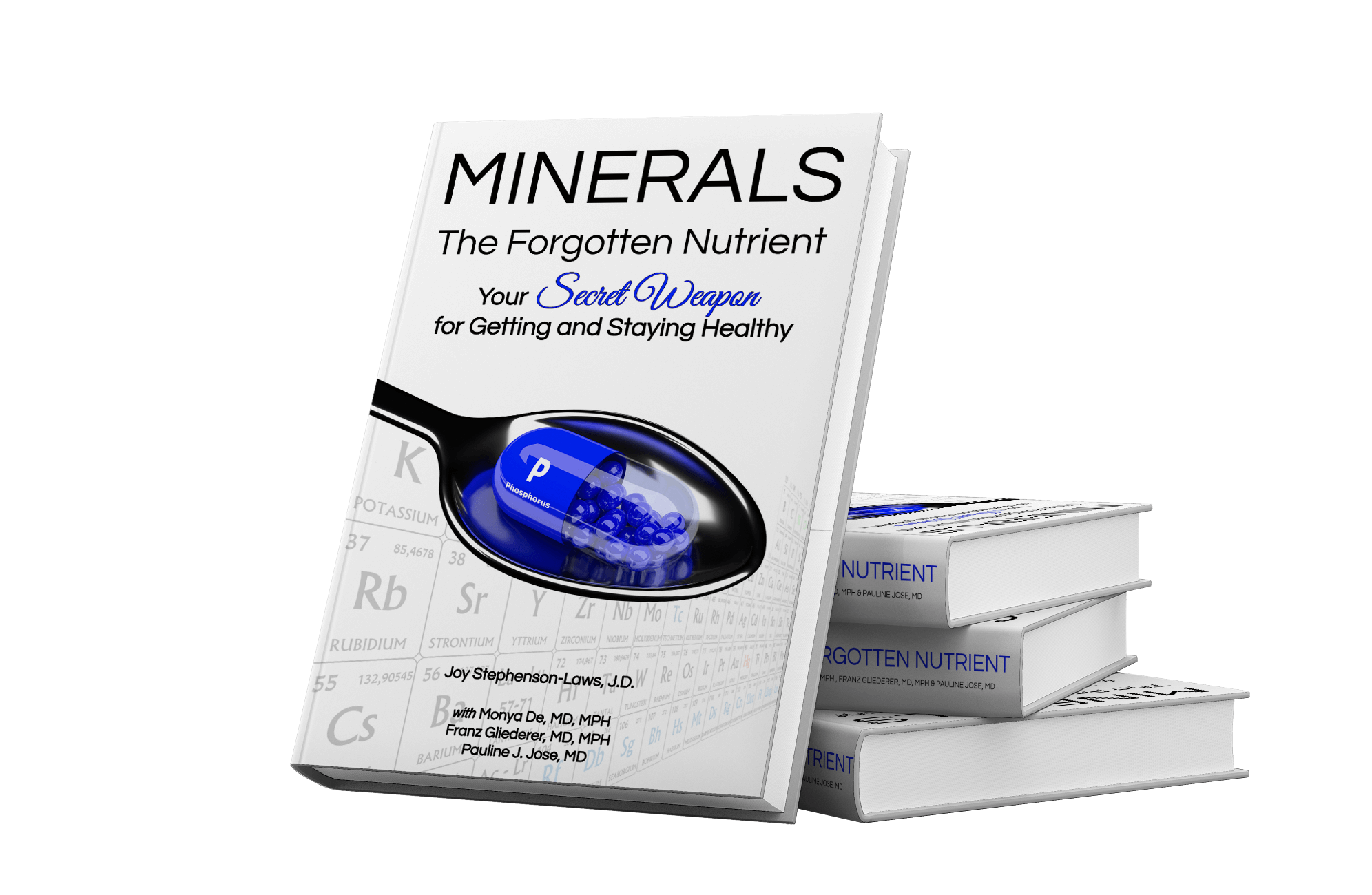
Take Control of Your Health With Minerals!
By: Joy Stephenson-Laws, J.D., Founder
Minerals are, in many ways, the unheralded and often forgotten heroes of keeping our bodies functioning at their best. While the nutrients, carbohydrates, proteins and fats may be better well known, minerals are equally vital for helping us get and stay healthy.
They play a key role in combating disease, helping your body heal, managing ongoing chronic health problems such as high blood pressure, minimizing the impact of such common maladies as headaches and PMS, helping children grow up strong, enhancing mental performance at all ages, and fatigue. They truly are your secret weapon for getting and staying your healthiest.
In this easy-to-read and easy-to-use guide, pH Lab’s team of recognized medical doctors and specialists tell you about the role minerals play with common health issues along with detailed information about individual minerals. You’ll also learn more about the relationship between minerals and prescription medicines, why you need more than routine blood tests to see what minerals your body may need, and where you can get these tests.




LIFESTYLE CHOICES THAT CONTRIBUTE TO MINERAL DEFICIENCY
SODAS
Phosphoric acid is used to enhance the flavor of many carbonated drinks. It provides that tanginess that we enjoy. Although phosphorus is an integral part of bones, high phosphorus intake, such as from the acidic forms found in sodas, can cause essential healthy bone minerals such as calcium and magnesium to get pushed away while phosphates take their place leading to brittle bones (osteoporosis).
ALCOHOL
Chronic excessive alcohol users frequently have multiple nutritional and mineral deficits. Alcohol has strong diuretic effects which may contribute to loss of minerals in the urine. There are other mechanisms by which alcohol depletes minerals and affects bone formation. These are complex and technical issues, which are beyond the scope of this book and will not be addressed.
COFFEE
In some older studies, increased coffee intake was mentioned as a minor contributor to osteoporosis; recent studies did not find any differences. It is also noteworthy that different types of coffee contain different amounts of minerals. Overall regular use of one cup of coffee per day does not seem to have any adverse effects on minerals and bone health, while high use may.
WATER WITH LOW MINERAL CONTENT
The minerals in drinking water from a municipal source or from bottled water differ. Clinical studies suggest that drinking water that is rich in bicarbonate and potassium lowered calcium excretion in the urine and bone resorption. That means bone is being better preserved. Mineral waters rich in potassium, magnesium, medium calcium and low sodium content are useful for overall health not just for bone and cardiovascular benefits. Fluids lacking in minerals may be counterproductive to health.
STRESS
Stress increases cortisol levels and also interferes with other mineral-reabsorbing hormones. This may cause increased urinary frequency, decreased mineral absorption and loss of essential minerals.
LACK OF MINERAL-RICH FOODS
Many individuals may be lacking in minerals, because they do not eat foods that are rich in minerals. It is generally difficult to see the results of such mineral deficits because the clinical signs may be vague and nonspecific. For example, some of the short term clinical signs of mineral deficiencies may be rather nonspecific, such as fatigue, appetite changes, constipation, headaches, sleep disturbances, muscle tightness and cramps, changes in menstruation and premenstrual syndrome, hair loss and skin conditions.
Don't let mineral deficiencies prevent you from taking control of your health. Find out more information about minerals from our book here.
Enjoy your healthy life!
The pH professional health care team includes recognized experts from a variety of health care and related disciplines, including physicians, attorneys, nutritionists, nurses and certified fitness instructors. This team also includes the members of the pH Medical Advisory Board, which constantly monitors all pH programs, products and services. To learn more about the pH Medical Advisory Board, click here.







